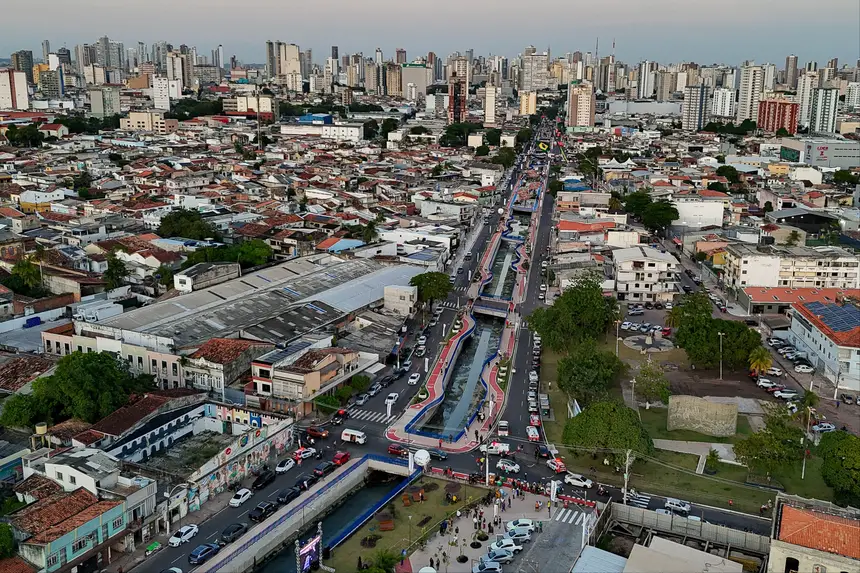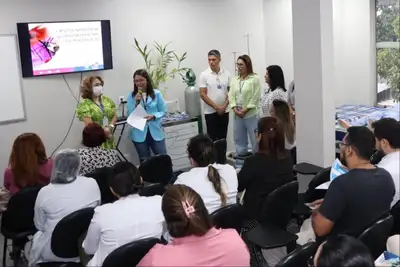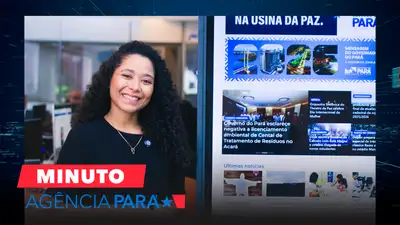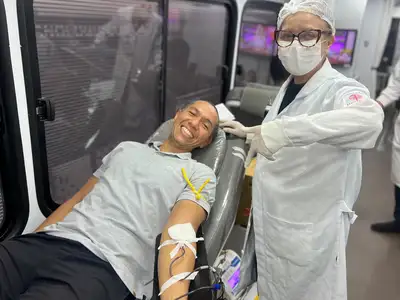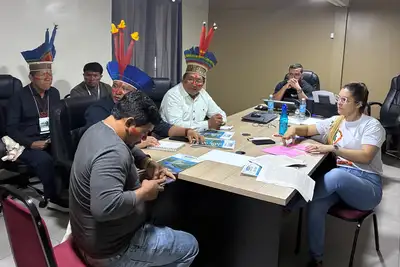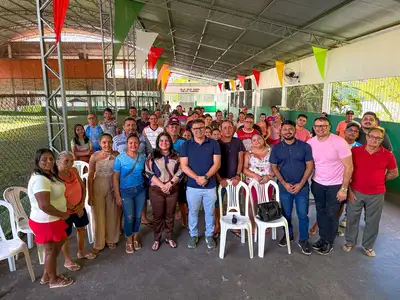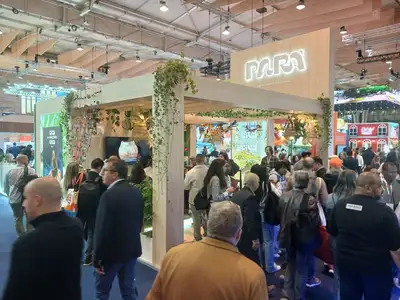Global Amazon Integration Forum Brings Together Universities from the Region and International Leaders in Belém
Event promoted by Uepa and Abruem, from November 12 to 14, proposes dialogues on sustainability, innovation, and climate justice in programming aligned with COP30
On November 12, 13, and 14, the State University of Pará (Uepa), in partnership with the Brazilian Association of Rectors of State and Municipal Universities (Abruem), will host the Global Amazon Integration Forum: University Dialogues for COP30, at the auditorium of the Center for Biological and Health Sciences (CCBS) in Belém.
The event will bring together rectors, researchers, students, representatives of traditional communities, and international leaders, establishing itself as a space for dialogue on sustainability, innovation, diversity, and climate justice. The program includes thematic panels, workshops, a sustainable solutions fair, and cultural activities, featuring both national and international names.
Among the confirmed international guests is Yalchin Rafiyev, Deputy Minister of Foreign Affairs of Azerbaijan and Chief Negotiator of COP29, who will share experiences of diplomatic and scientific articulation around climate change.
The Forum aims to strengthen research and cooperation networks among higher education institutions in the Legal Amazon, encouraging the construction of a joint agenda focused on science, innovation, and sustainable development.
Dialogue that transcends borders - Uepa's rector, Clay Anderson Nunes Chagas, emphasizes that the event was born from an articulation between the Forum of State Universities of the Amazon, which he presides over, and Abruem, to broaden the reach and diversity of participants.
“Initially, we thought of an event aimed only at universities in the Amazon, but we soon realized the potential for integration with institutions from other regions and also internationally. From that, we sent invitations to foreign universities and embassies. Today, we have significant participation both nationally and internationally, which consolidates this forum as a major space for academic cooperation,” said the rector.
For him, the Global Amazon Integration Forum represents an important step in building joint research networks among universities in the Legal Amazon, with the potential to generate concrete solutions to the environmental challenges of the region.
“No university alone can face climate change. What we propose is to create networks of projects and researchers that strengthen institutions and expand innovation aimed at sustainability. This is the true legacy we want to leave for COP30,” reinforced Professor Clay Chagas.
Amazônia and Mato Grosso at the center of the global debate
Among the guests, the rector of the State University of Mato Grosso (Unemat), Professor Vera Maquea, emphasizes that the forum is a milestone for scientific and social dialogue about the role of the Amazon in addressing climate change.
“The expectation is for a transformative dialogue, as COP30 takes place precisely in the region most implicated in the global debate on climate change. Amazonian universities have the commitment to contribute to a regional and global pact that can truly advance,” she stated.
Vera Maquea reminded that Mato Grosso occupies a strategic position in this debate, as it houses three biomes of planetary relevance — Amazon, Cerrado, and Pantanal — and concentrates a large part of the country's agricultural production. According to her, the state represents both “economic strength” and the “urgency for a new development model.”
“Our mission is to act at the intersection of production and conservation. We hope that this COP30 helps us overcome the paradigm of growth at any cost, reinforcing that there is no long-term economic prosperity without the conservation of the Amazon, Cerrado, and Pantanal,” highlighted the rector.
She also emphasized the importance of including local populations — indigenous peoples, quilombolas, riverside communities, and family farmers — in the debates and proposed solutions: “It is imperative that solutions consider the expertise and needs of the populations living in the region. Technological development must strengthen their sustainable practices and ensure quality of life, integrating them fairly into the productive chains.”
Even with a reduced delegation, composed of five representatives, Unemat will be present at the event. “Logistical difficulties prevent us from attending in greater numbers, but our participation reinforces Unemat's commitment to this essential debate,” said Maquea.
Expectations and invitation to the academic community
Uepa's rector emphasizes that the event is already generating great interest among institutions across the country. Fifteen days ago, nearly 70 institutions had confirmed their attendance. This shows that the forum is growing every day and consolidating itself as a space for the protagonism of Amazonian research. We are counting on the participation of the entire community to learn about the initiatives of the universities and contribute to this dialogue that includes us in the discussions held during COP30,” said Clay Chagas.
Service
Global Amazon Integration Forum: University Dialogues for COP30
📅 November 12 to 14, 2025
📍 Auditorium of the Center for Biological and Health Sciences (CCBS) – State University of Pará (Uepa)
Address: Travessa Perebebuí, nº 2623 – Marco, Belém (PA)
💬 Program: panels, workshops, sustainable solutions fair, and cultural activities. See the details here
🌍 Free registrations: click here
🚶♀️ How to get there:
CCBS is located in the central area of Belém, with easy access by public transport and bike lanes, as well as app transport services. For those opting for sustainable transport, there is bike parking and a connection point with the bike lane on Avenida Almirante Barroso.
🌱 Whenever possible, Uepa recommends the use of collective transport, bicycles, or carpooling, contributing to the reduction of carbon emissions — in line with the purpose of COP30.



